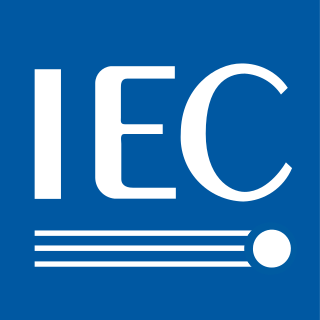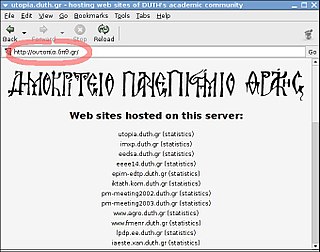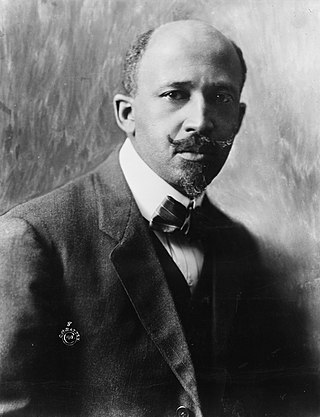
The International Electrotechnical Commission is an international standards organization that prepares and publishes international standards for all electrical, electronic and related technologies – collectively known as "electrotechnology". IEC standards cover a vast range of technologies from power generation, transmission and distribution to home appliances and office equipment, semiconductors, fibre optics, batteries, solar energy, nanotechnology, and marine energy, as well as many others. The IEC also manages four global conformity assessment systems that certify whether equipment, system or components conform to its international standards.

In computing, internationalization and localization (American) or internationalisation and localisation (British), often abbreviated i18n and l10n respectively, are means of adapting computer software to different languages, regional peculiarities and technical requirements of a target locale.
In economics, internationalization or internationalisation is the process of increasing involvement of enterprises in international markets, although there is no agreed definition of internationalization. Internationalization is a crucial strategy not only for companies that seek horizontal integration globally but also for countries that addresses the sustainability of its development in different manufacturing as well as service sectors especially in higher education which is a very important context that needs internationalization to bridge the gap between different cultures and countries. There are several internationalization theories which try to explain why there are international activities.
This is a list of international trade topics.
Punycode is a representation of Unicode with the limited ASCII character subset used for Internet hostnames. Using Punycode, host names containing Unicode characters are transcoded to a subset of ASCII consisting of letters, digits, and hyphens, which is called the letter–digit–hyphen (LDH) subset. For example, the German München is encoded as Mnchen-3ya.

An internationalized domain name (IDN) is an Internet domain name that contains at least one label displayed in software applications, in whole or in part, in non-Latin script or alphabet or in the Latin alphabet-based characters with diacritics or ligatures. These writing systems are encoded by computers in multibyte Unicode. Internationalized domain names are stored in the Domain Name System (DNS) as ASCII strings using Punycode transcription.
.museum is a sponsored top-level domain (sTLD) in the Domain Name System of the Internet used exclusively by museums, museum associations, and individual members of the museum profession, as these groups are defined by the International Council of Museums (ICOM).

The International Association of Universities (IAU) is a membership-led non-governmental organization working in the field of global higher education. It has more than 600 members in over 130 countries, including institutions, organizations, affiliates, and associates in higher education. The IAU was created under and is an official associate partner of the United Nations Educational Scientific and Cultural Organization (UNESCO).

.cn is the country code top-level domain (ccTLD) for the People's Republic of China. Introduced on 28 November 1990, the domain is administered by China Internet Network Information Center, a public institution affiliated with the Ministry of Industry and Information Technology. The domain is the largest ccTLD in the world.

We Charge Genocide is a paper accusing the United States government of genocide based on the UN Genocide Convention. This paper was written by the Civil Rights Congress (CRC) and presented to the United Nations at meetings in Paris in December 1951.
II is the Roman numeral for 2.

The Dag Hammarskjöld Library is a library on the grounds of the headquarters of the United Nations, located in the Turtle Bay/East Midtown neighborhood of Manhattan in New York City. It is connected to the Secretariat and Conference buildings through ground level and underground corridors. It is named after Dag Hammarskjöld, the second Secretary-General of the United Nations. The library was founded in 1946, and the current library building was completed in 1961.

The Democracy Index published by the Economist Group is an index measuring the quality of democracy across the world. This quantitative and comparative assessment is centrally concerned with democratic rights and democratic institutions. The methodology for assessing democracy used in this democracy index is according to Economist Intelligence Unit which is part of the Economist Group, a UK-based private company, which publishes the weekly newspaper The Economist. The index is based on 60 indicators grouped into five categories, measuring pluralism, civil liberties, and political culture. In addition to a numeric score and a ranking, the index categorizes each country into one of four regime types: full democracies, flawed democracies, hybrid regimes, and authoritarian regimes. The first Democracy Index report was published in 2006. Reports were published every two years until 2010 and annually thereafter. The index includes 167 countries and territories, of which 166 are sovereign states and 164 are UN member states. Other democracy indices with similar assessments of the state of democracy include V-Dem Democracy indices or Bertelsmann Transformation Index.
Mark Edward Davis is an American specialist in the internationalization and localization of software and the co-founder and chief technical officer of the Unicode Consortium, previously serving as its president until 2022.
An internationalized country code top-level domain is a top-level domain in the Domain Name System (DNS) of the Internet. IDN ccTLDs are specially encoded domain names that are displayed in an end user application, such as a web browser, in their language-native script or alphabet, such as the Arabic alphabet, or a non-alphabetic writing system, such as Chinese characters. IDN ccTLDs are an application of the internationalized domain name system to top-level Internet domains assigned to countries, or independent geographic regions.

Royal Thimphu College is a private college in Thimphu, Bhutan under the Royal University of Bhutan. It is Bhutan's first private college.
Harvest House International Church, often abbreviated to 'HHI Church', is a Unitarian church founded in 1995, and currently based out of Johannesburg, South Africa. According to the Global Civil Society Database, the church's aim is to "Take the nations for Christ Jesus, preaching the Gospel with signs and wonders following, bringing life and healing to the lost, wounded, lonely, rejected and downtrodden". According to the church, they have nearly 7000 members and 716 churches.
A uniform resource locator (URL), colloquially known as an address on the Web, is a reference to a resource that specifies its location on a computer network and a mechanism for retrieving it. A URL is a specific type of Uniform Resource Identifier (URI), although many people use the two terms interchangeably. URLs occur most commonly to reference web pages (HTTP/HTTPS) but are also used for file transfer (FTP), email (mailto), database access (JDBC), and many other applications.








